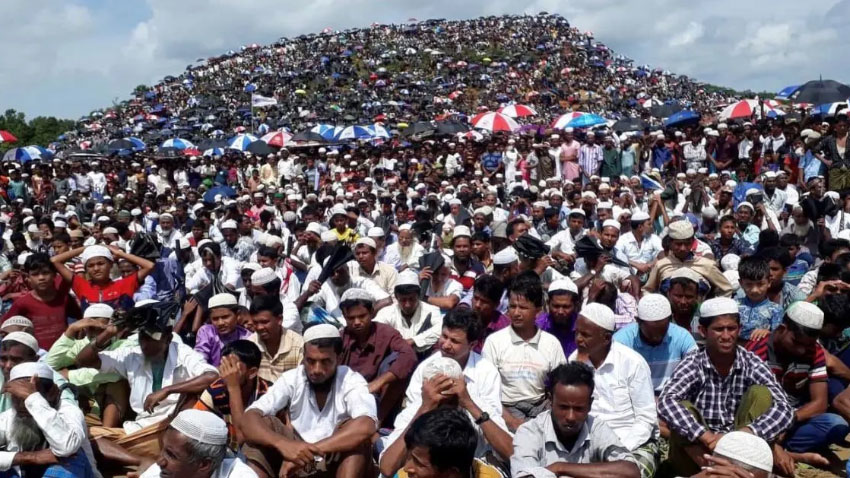Online Report.
A three-day international conference on the Rohingya crisis, titled ‘Stakeholders’ Dialogue: Takeaways to the High-Level Conference on Rohingya Situation’, will begin in Cox’s Bazar on Sunday, as Bangladesh seeks to engage the global community on the protracted humanitarian crisis.
Chief Adviser Prof Muhammad Yunus is scheduled to attend the dialogue on August 25. Other key participants include Disaster Management and Relief Adviser Faruk E Azam, High Representative for the Rohingya Issue and National Security Adviser Dr Khalilur Rahman, UN Resident Coordinator (a.i.) Rana Flowers, Head of the Independent Investigative Mechanism for Myanmar Nicholas Koumjian, UN Special Rapporteur on Myanmar Thomas H Andrews, and UNHCR Assistant High Commissioner Raouf Mazou, a senior official told UNB.
Bangladesh, hosting over 1.3 million Rohingyas in Cox’s Bazar and Bhasan Char, is working to develop a roadmap for their safe and dignified return to Myanmar. The dialogue aims to produce actionable recommendations for the upcoming high-level conference in New York on September 30, held on the sidelines of the United Nations General Assembly.
Organized by the Office of the High Representative for the Rohingya Issue and the Ministry of Foreign Affairs, the Cox’s Bazar dialogue will bring together experts, diplomats, Rohingya representatives, international organizations, and academics. Sessions will explore humanitarian assistance, confidence-building for repatriation, accountability for atrocities, and strategies for a sustainable, time-bound solution to the crisis. Participants will visit Rohingya camps on August 26.
The voices of Rohingya men, women, and youth will be highlighted, providing an opportunity for the international community to hear firsthand about their aspirations, concerns, and expectations.
Chief Adviser’s Press Secretary Shafiqul Alam noted that two additional international conferences are planned later this year in New York and Doha, with the largest gathering in New York in late September. Delegates from 40 countries, UN agencies, and diplomats based in Dhaka are expected to participate in Cox’s Bazar, alongside special discussions with Rohingya representatives scheduled for August 24.
Foreign Adviser Md Touhid Hossain emphasized that the government is working on three fronts: ensuring uninterrupted foreign funding, keeping global attention on the crisis, and facilitating the safe and dignified return of Rohingyas. He stressed the enormous strain on Bangladesh’s economy, environment, and local communities, saying the pressure from hosting over 1.3 million refugees is unsustainable.
Humanitarian partners, including UNHCR, are responding to the needs of up to 150,000 Rohingya refugees who have arrived in the last 18 months, many of them women and children. The new arrivals have worsened conditions in already overcrowded camps, highlighting the urgent need for international assistance.
The dialogue aims to create a comprehensive framework addressing repatriation, funding gaps, and sustainable solutions, reinforcing Bangladesh’s role as a host country showing extraordinary compassion and responsibility amid an ongoing humanitarian crisis.


